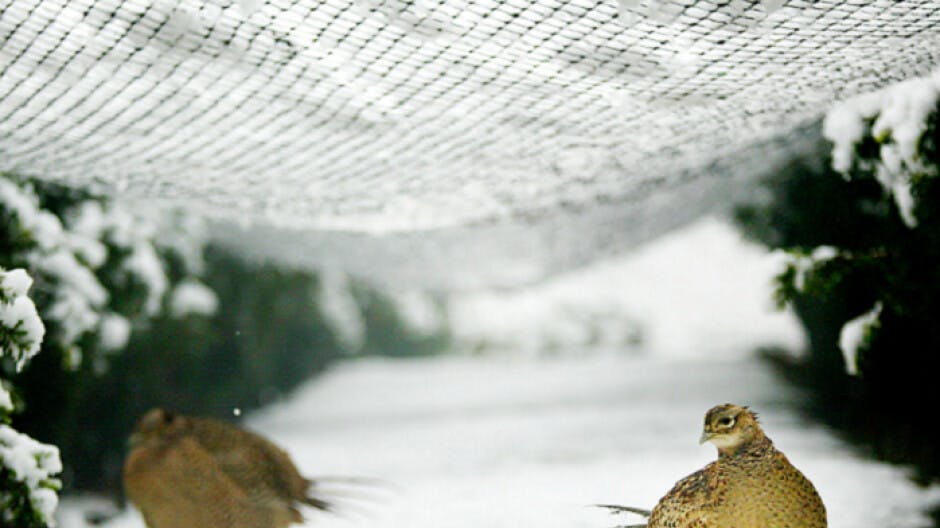動靜皆宜,一動不如一靜;英文動詞 move 一般可指:改變位置,取得進步,採取行動等多重意義。
改變位置
當 move 有 to change the position of your body 意思時,同義詞有 go, walk, march, advance, progress, proceed 等。我們說:Don’t move—stay perfectly still 一點都別動;He moved to the door 他走近門去。
Make for something = move towards something 向……移動,例如逃生時跑向 an exit, a gate, a door to escape;make way for something = to create space for something else 讓……通過;讓出位置;騰出地方;make your way somewhere 前往某地。
當 move 有 to go to a different place 意思時,同義詞有 relocate, leave, quit, go away, migrate, move house, change residence, change one’s address 等。
取得進步,採取行動
我們說 move along 向前移動,get moving 馬上行動,go ahead 先走一步,change position 更換位罝;卻習慣說 make progress 取得進步。
由 move 組成的慣用語
有以下幾個最常見的:
make a move 採取主動,do something, take the initiative;
you are always on the move 經常變換地點,you are travelling on the road from place to place;
get moving 馬上行動,迅速開始或離開,to begin or to leave quickly;
move heaven and earth 竭盡所能、全力以赴,to do everything you possibly can in order to achieve something;
movers and shakers 在重要機構中有權勢的人,people with power in important organizations。
Movers and walkers 就明顯地有分別。
To walk 是以下同類組合主題字彙中,最籠統的一個詞,除了 run 跑、jump 跳之外,泛指各種移動脚步的動作。Walk is the most general and neutral of the following groups of words. Walk encompasses all manners of moving on foot short of running or jumping.
走路的方式
為着方便學習,我們大概可以用 ways of walking 走路的方式,更準確地區分:
To walk quickly 疾走:
stride 大步走,步幅大而且節奏有力,refers to a swift, purposeful way of walking;
march 齊步前進,to walk quickly and with firm steps;
pace 徘徊,to walk backwards and forwards 來來回回地行走;例如:pace the room 室內踱步;pace up and down in the corridor nervously 焦慮不安地在走廊裏走來走去。
To walk slowly in a relaxed way 信步而行,享受散步的樂趣:
stroll 漫步溜躂,to walk in a slow and relaxed way;it suggests laziness, leisure, indecisiveness, or simply the enjoyment of walking,例如:strolling through the park;
saunter 閒逛,to walk in a slow and lazy way 指沒有目的地漫步,强調走路時懶散、悠閒:He is whistling as he sauntered along the beach;
amble 從容輕鬆地行走,to walk in a slow and relaxed way;ambling across/along/towards 都常見。
To walk slowly because you are tired 疲倦地慢行:
plod 沉重緩慢地走,to walk slowly and with heavy steps;plodding through/along/back 均適用;
trudge 步履艱難地走、緩慢而吃力地走,to walk slowly because you are tired or carrying something;
traipse 磨蹭、疲憊地走,to walk a long way slowly or when you are tired and unwilling。
To walk slowly because you are in pain or weak 痛苦地或疲倦地慢行:
limp 跛行,to walk with difficulty because you are hurt;
shuffle 拖着脚走,to walk slowly and noisily, without lifting your feet off the ground 雙脚在地上慢慢拖着走,幾乎看不出離開地面;
shamble 蹣跚、踉蹌而行,to walk slowly and rather awkwardly, bending forward in a tired or lazy way, dragging your feet along the ground。
To walk in an unsteady way 不平穩地走路:
stagger 搖搖晃晃地行走,to walk very unsteadily;例如當酒徒爛醉如泥,踉踉蹌蹌地走出酒吧,they staggered out of the pub, completely drunk;
waddle 搖搖擺擺地行走,to walk with short steps, with an awkward, laborious gait, swaying from side to side like a duck 步幅小,像隻鴨子似地兩邊搖晃,步履艱難費力,比如一個很胖的人走路的模樣;
stumble 跌跌撞撞地走,to walk unsteadily, often hitting things with your feet,尤其是在黑夜,you can say someone is stumbling around in the dark;
lurch 跌跌蹌蹌而又東踅西倒地走路,to walk very unsteadily, moving from side to side with sudden irregular movements。
To walk with heavy, noisy steps 走路時發出聲浪:
stomp 噔噔地走,to walk with heavy step, making a lot of noise;
clump 以沉重的脚步行走,to walk with slow, heavy noisy steps wearing heavy shoes。
To walk quietly 輕聲地走路:
tiptoe 踮着脚走路,to walk on your toe because you do not want to make any noise;
creep 悄悄地慢走,to walk quietly and carefully;
sneak 悄俏地溜走,to walk quietly and secretly so that no-one notices you;
pad 放輕脚步走,to walk quietly and steadily without shoes or with soft shoes。
本專欄逢周二、五發表














































